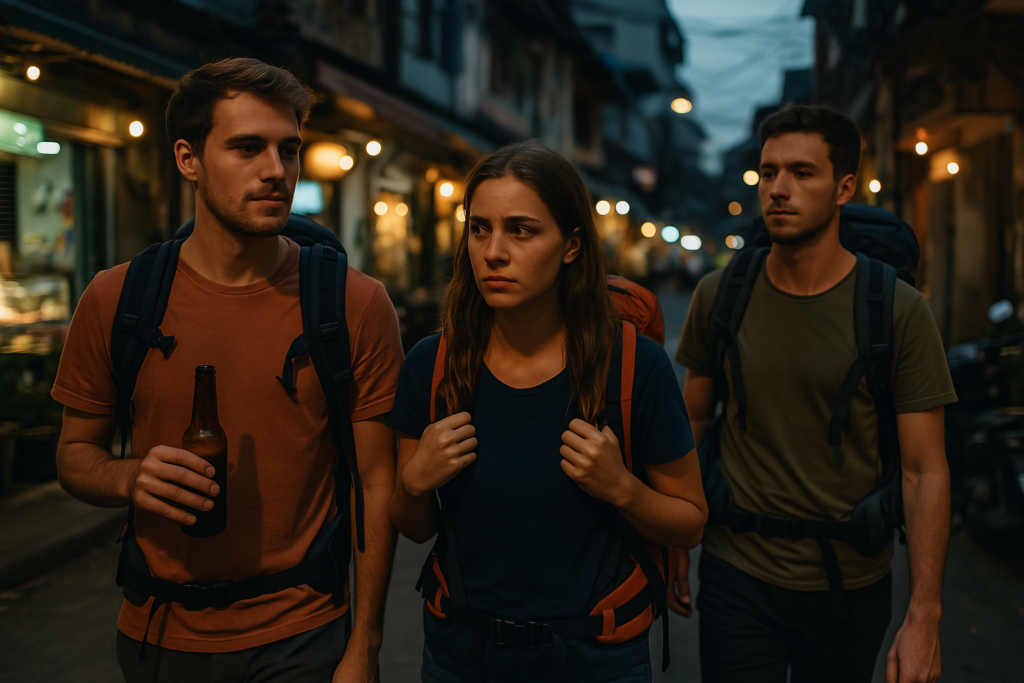 Travel Advice
Travel Advice
Methanol Poisoning – What Young Travellers Need to Know
When travelling abroad, especially to popular backpacker destinations, it is important to stay aware of hidden dangers. One risk that is often overlooked is methanol poisoning. Sadly, this type of poisoning can be fatal — and young travellers are especially at risk.
What Is Methanol Poisoning?
Methanol is a toxic form of alcohol often used in industrial products like antifreeze, paint thinners, and cleaning solvents.
Unlike ethanol (the type of alcohol found in beer, wine, and spirits), methanol is highly poisonous to humans — even small amounts can cause serious harm.
In some countries, poorly regulated alcohol production leads to methanol being illegally added to drinks to increase their strength cheaply.
This is especially common in homemade spirits or local bars that serve unlicensed alcohol.
How Does Methanol Poisoning Happen?
Methanol poisoning often occurs when travellers drink contaminated or counterfeit alcoholic beverages.
The most common risk factors include:
-
Drinking cheap spirits from unregulated sources
-
Accepting free or homemade alcohol at parties or local events
-
Consuming drinks from informal or roadside bars
-
Buying alcohol in unfamiliar packaging or unsealed bottles
Sadly, young backpackers are particularly vulnerable due to limited awareness, budget travel habits, and a trusting attitude while abroad.
Symptoms of Methanol Poisoning
Symptoms of methanol poisoning typically appear within 12 to 24 hours of ingestion.
They may include:
-
Headache
-
Dizziness
-
Nausea and vomiting
-
Abdominal pain
-
Difficulty breathing
-
Blurred vision or blindness
-
Loss of consciousness
-
Seizures
If left untreated, methanol poisoning can cause permanent blindness, organ failure, or even death.
⚠️ Urgent medical treatment is critical.
What To Do If You Suspect Methanol Poisoning
-
Seek immediate medical attention — methanol poisoning requires urgent hospital care.
-
Do not wait for symptoms to worsen — early intervention can save lives.
-
Tell healthcare providers if the person has recently consumed alcohol, especially from an unknown source.
-
Antidotes (such as ethanol or fomepizole) can prevent methanol from being broken down into toxic by-products, but only if given quickly.
How To Stay Safe While Travelling
Young travellers can protect themselves by taking a few simple precautions:
-
Avoid very cheap or homemade alcohol.
-
Stick to sealed, branded drinks from reputable shops or bars.
-
Be cautious at parties — especially where alcohol is offered for free.
-
Trust your instincts — if something looks or tastes wrong, do not drink it.
-
Travel insurance that covers medical emergencies abroad is essential.
For official travel health advice, visit NHS Fit for Travel.
SkyCare Can Help
At SkyCare, we specialise in emergency medical repatriation.
If you or a loved one becomes unwell abroad, we can arrange swift, professional transport back to the UK — whether by air ambulance or commercial medical escort.
Your safety matters.
If you need urgent medical assistance while travelling, contact SkyCare immediately.
Important Reminder
Many countries do not regulate alcohol sales as strictly as the UK. Always stay cautious, especially when travelling through popular backpacker destinations in South-East Asia, South America, and Eastern Europe.
More information is available at GOV.UK Foreign Travel Advice.
Stay alert, stay safe — and enjoy your travels responsibly.

 SkyCare
SkyCare 